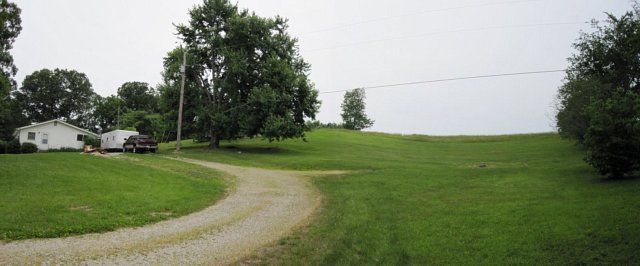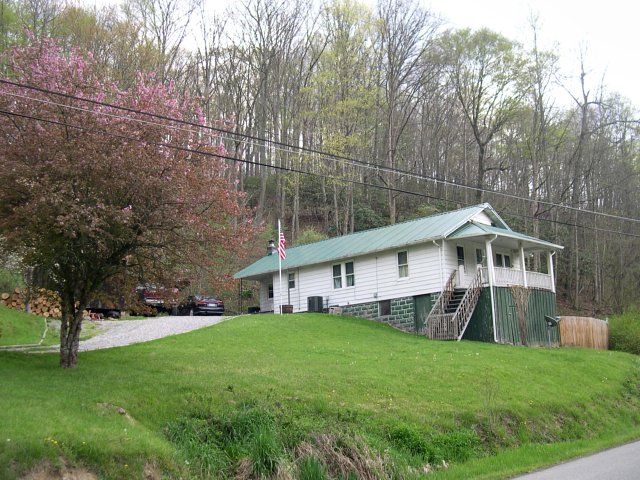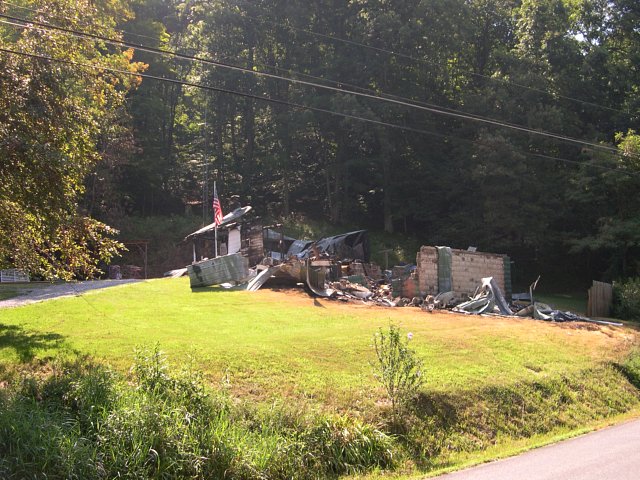
We have featured content from our friend Nick Mullins several times in the past year — he is the insightful mind behind Out of the Coal Mines and Into the Fire, a blog about his transition out of the mines that employed him, his father, and his grandfather in Southwest Virginia. Today we're posting Nick's story, as he shared it with MIT's CoLab. We love Nick's honesty and thoughtfulness. His story is a hopeful, if sometimes anxious, vision of what we're all facing during this transitional time. We hope you'll take the chance to read his tale, and tell us more about your own.
by Nick Mullins

Despite not having worked in a coal mine for over a year, I continue to dream of it. I dream I am preparing for a shift – putting my valuables in my locker before sitting down to lace up my work boots. I see and greet old co-workers who act as if I never left. The feeling is always the same. I tell everyone, “I’m not supposed to be here, I quit a year ago.” They just laugh and I continue on. After I get my cap lamp on I wake to realize I’m far away from that place, both geographically and metaphorically. My life, my family’s life, has changed so much in the past year. Still the old feelings of working at the mine wash over me as I drift into a state of melancholy.
What makes a home? I suppose it differs from one person to the next, but for my family, home has been the mountains of central Appalachia for over 200 years. The peace of the mountains was our refuge from the world, at least until the world found us.
Georges Fork was a place where people came together to help one another and where being a neighbor meant more than just living next to someone. Children were raised with a good understanding of what it meant to live simply and be happy, and that giving was better than receiving. People fought for what they believed in, sacrificing and risking it all, joining others to see that all were treated fairly and with dignity.
Unfortunately time changes everything.
As the older generations pass on so do many of those values that were so deeply engrained in day-to-day life within these hills and hollows. The race to live, to provide for our families, has been tied to the almighty dollar. We now sell our lives to the lenders who will gladly place people in debt to them. All the many lessons we were once taught seem to have vanished.
I saw the evidence of our eroding mountain culture unravel in the depths of the mine I worked in. More often than not good men were abused at the hands of workers who only worried about themselves and their paychecks. Southwestern Virginia used to be a strong hold for the United Mine Workers, but today’s greed amongst the officials and even the union’s rank and file has destroyed it. No one will stand together.
The life of a miner in today’s coal mine is one of mandatory overtime and odd shifts – enjoying life only through what can be bought.
It wasn’t until the loss of our home in a fire that we were able to see life in a different light, apart from the material things we had come to cherish more than a breath of clean air or the cool drink of crystal clear spring water. Our eyes opened more to the many wrongs occurring in our mountain home. We learned of the heavy metals contaminating our water supply, along with the increased cancer rates. We realized how truly deteriorated the educational system had become; schools were more intent on producing future coal miners than college graduates.

The author’s Virginia home before the fire.

The same home, after fire.
Georges Fork, where we had once hoped to raise the tenth generation of Mullins children, was no longer a safe haven of moral values. It had become a place where money was valued more than nature, and the coal industry was the glorious savior of the mountain people.
After losing our house we started to search for a new home. Western North Carolina, Eastern Tennessee, the Virginia Highlands of Abingdon and Damascus were all seriously considered, but for one reason or another – an overpriced real-estate market, few employment opportunities, or poor educational opportunities – we had to look elsewhere. We though about New England, Colorado, Northern California, Alaska, and even Vancouver.
Then I read “Lost Mountain” by Eric Reece. He wrote of Berea College in Berea, Kentucky and the Ecovillage where adults with children could attend college for free while living in a sustainable environment. The idea of sustainability had always been dear to me – to live as my forefathers had, to save energy or even produce my own energy using the sun and the wind.
Nearly a year later, after sifting through the ashes of our home, we drove to Berea to look around. It was love at first sight. The schools were some of the best in the state. Berea was a progressive forward-thinking town built on the foundation of educating freed slaves and impoverished Appalachian people. Berea loved the mountains, not the money underneath them. Here we could make a new life. I could use my skills as a mine electrician to learn more about solar and wind energy, and perhaps even go to college, all while working with organizations like Kentuckians for the Commonwealth to save the mountains I still call home.
Real estate prices were amazingly low and we quickly found a modest home on five acres to fix up. We purchased it. Living off the remnants of our savings, I have been trying to start an energy efficiency business but have met great difficulty in a failing economy.
I was given the opportunity to take workshops in Solar Photovoltaics, a field I wish in earnest to pursue further, but with few people able to afford those, jobs are not as plentiful as I’d hoped. Now I am working part time for a university as a modest laborer, hoping to go full time so I may make enough money to pay our bills before our savings run out. If I go full time I can receive free credit hours at the university. But there are so many variables, so many financial worries.
One thing is certain: despite the financial hardships we now face, we are happier. Our children love their new school and the teachers who genuinely care for their education. We have made friends. I no longer sit on a wooden bench in the dusty locker room of Deep Mine 26 every night, lacing up my boots and praying for a better future for us all. Now I have the chance to build the future rather than destroy it. I can only hope I will somehow find the strength and ability to do so.
Photos by Rustina Mullins.
Kristin Tracz served MACED’s Research and Policy team from 2009-2012 working on clean energy policy, energy efficiency programs and the Appalachian Transition Initiative. She joined MACED after finishing her Master of Environmental Management degree at the Yale School of Forestry & Environmental Studies. She now lives and works in Washington, DC.
Leave a Reply